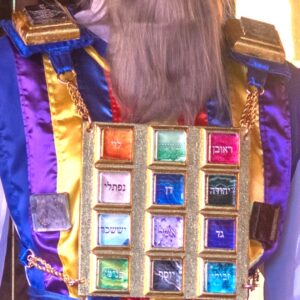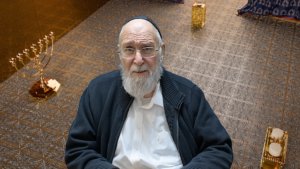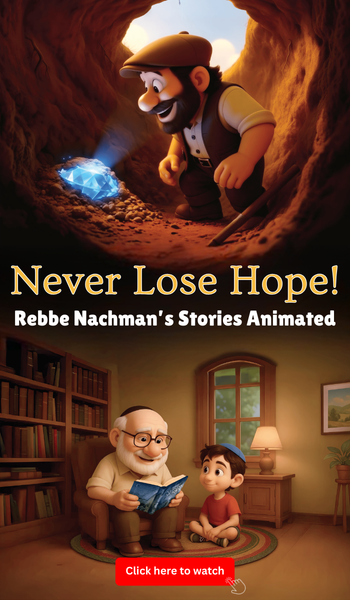When Criticism Heals
ADAPTED FROM HIS AUDIO SHIURIM ON MELACHIM 2 – LESSON 14 AND SICHOS HARAN 124
Introduction to Rebuke
“וְאִם־לֹא תִשְׁמְעוּ לִי וְלֹא תַעֲשׂוּ אֵת כָּל הַמִּצְוֹת הָאֵלֶּה…”
“But if you will not listen to Me and will not perform all these commandments…”
(“Tochacha” – Vayikra 26:14)
In Sefer Melachim, we encounter one of the most powerful and dramatic moments in Jewish history: the discovery of a hidden Sefer Torah during the righteous reign of King Yoshiyahu. This event, seemingly accidental, led to a national spiritual reckoning. The Sefer Torah was found rolled open to the parshas haTochacha—the section of dire rebuke delivered by Moshe Rabbeinu, warning of the devastating consequences of abandoning Hashem’s covenant. Upon reading the words, the king trembled. It was not merely a historical artifact that had been uncovered— it was like holding up a mirror and seeing how far the people had drifted from where they were meant to be.
This moment of rebuke helps us understand how Hashem warns us when we’re going off track, and how we’re meant to respond. How can we offer rebuke to others in a way that helps—not harms? And how can we rebuke ourselves with honesty—without falling into despair?
Rebbe Nachman’s Words Give Life
Reb Noson wrote that Rebbe Nachman once asked him, “Have you ever heard from me any divrei mussar?” Mussar refers to lessons that teach a person yiras shamayim, fear of Hashem. Rebbe Nachman qualified his question by adding, “because I feel that I cannot speak words of mussar. Every word that I say is soaked in tears, with a part of my heart in it.”
At first, Reb Noson was surprised. Every word that Rebbe Nachman ever spoke was mussar. His words were so fiery, they never failed to arouse a person to fear of Hashem. But then, Reb Noson understood Rebbe Nachman’s meaning. The regular type of mussar spoken by maggidim delivered the message that, “You are sinners! You are committing crimes. Wake up before it is too late! You are going to suffer. You are going to pay for your sins.” They were saying, “The mitzvos you do are not good enough. You have got to try harder.”
Rebbe Nachman, by contrast, delivered a different message. His words enflamed within his listeners a powerful love for Hashem and a desire to serve Hashem. This desire was so strong, the person literally became devoid of all evil thoughts. Every person is endowed with bechirah, free choice. You can choose the good way of life, the way of Torah, or chas veshalom, you can turn to sin. However, when hearing Rebbe Nachman speak, people felt that they had lost their bechirah. Their yetzer hara left them completely, and the only thought left in their minds was that they could now serve Hashem.
This was the power of Rebbe Nachman’s words. Reb Noson says that anyone who had ever attended Rebbe Nachman’s shiurim attested to this fact. A lesson, a sentence, or even a word from Rebbe Nachman, but especially a shiur, was enough to give a person new life, a renewed spirit. It elevated their neshamah, sending it soaring to heights far beyond anything they had ever experienced before.
Rebbe Nachman’s Sefarim
This was in the days of Rebbe Nachman, but what can we do today, after Rebbe Nachman’s histalkus (passing)? We never had the zekhiah (merit) to see Rebbe Nachman or even Reb Noson. There were no recordings then, so we have no tapes left from Rebbe Nachman, Reb Noson, or even later generations. Sadly, we have no tapes from Rav Kokhav Lev, either. The tape recorder was invented just a bit too late to get Rav Kokhav Lev’s voice on tape. Having some of his shiurim would have been priceless.
We can’t see Rebbe Nachman, we can’t hear him, or even visit his tziyon (Rabbi Rosenfeld gave this shiur in 1977, when the tziyon was extremely difficult to get to). How, then, can we access Rebbe Nachman’s words, which have the power to inspire a person, and infuse him with new life? Reb Noson says we can do that even today. Anyone who sincerely reads any one of Rebbe Nachman’s sefarim will find a light illuminated in his mind and his heart. He will have a renewed desire to live in a way that is purer than before.
Today, Rebbe Nachman’s sefarim serve as conduits for the living words emanating straight from Rebbe Nachman. A person can hear Rebbe Nachman by simply learning his sefarim. Fortunately, we have Reb Noson, Rebbe Nachman’s main disciple, who recorded a vast amount of Rebbe Nachman’s teachings and discussions. In fact, we have only Reb Noson to thank for all the books that we have today (Chayeh Moharan 370). Since we have this opportunity, we must take advantage of it and learn these teachings on a steady basis, with kevius.
A person should resolve never to let a single day of his life go by without learning at least a few passages of Rebbe Nachman’s teachings. It is not difficult. The words are written in very simple, clear Hebrew, so that even a beginner can understand them. There is nothing too deep or too difficult to grasp. Yet as simple as it is, it is made for the biggest tzaddikim and the greatest lamdanim. If approached with humbleness and sincerity, they, too, will have much to gain by hearing, reading, and learning the words of Rebbe Nachman.
- 0 comment





















